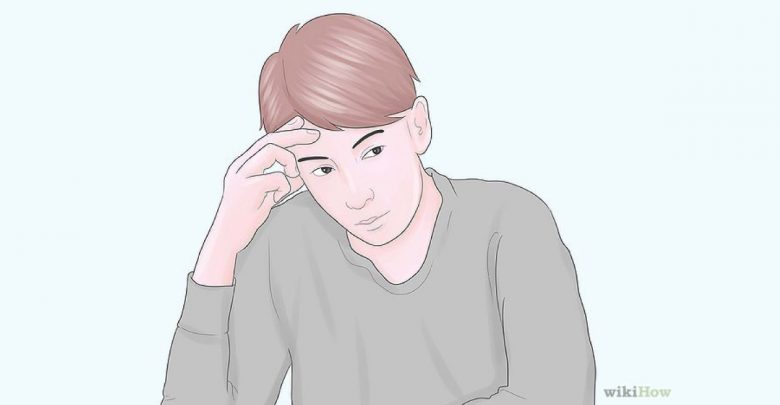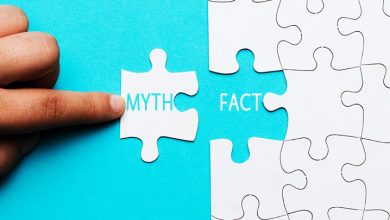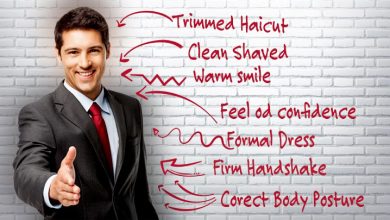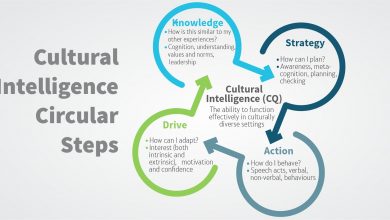How to develop critical thinking skills
Although all of our thinking and perception is based on our filters of reality, it is possible to become better at critical thinking and at seeing the full picture rather than only the picture that we want to see or the picture as it is being portrayed to us. As with everything else, practice makes perfect and continually practicing the muscle of critical thinking will make it stronger and more agile with time.

Why did I choose this tool? It is a clear step by step approach to developing critical thinking skills.
How does this apply to being a trainer? Dealing with concepts, beliefs, multicultural environments and differing worldviews is challenging. It requires the ability to be certain and confident about what we think and what we believe, while at the same time being capable of listening to, evaluating and if relevant even accepting different or even opposing views to ours. It also requires the ability to facilitate such a process in a group environment, possibly with people who have never challenged themselves to do this before. In order to do this, our critical thinking skills need to be as developed and as sharp as possible, so that we can reach the best possible results for ourselves and the groups we work with.
Main content:
First of all, what is critical thinking? When we hear the term critical thinking we might think of criticism or cynicism, when in reality those aren’t the elements that define critical thinking. Critical thinking is more of a rational and disciplined way of thinking that follows a consistent logic, and/or recognizes when consistent logic is absent.
“The earliest documentation of critical thinking are the teachings of Socrates recorded by Plato. Socrates established the fact that one cannot depend upon those in “authority” to have sound knowledge and insight. He demonstrated that persons may have power and high position and yet be deeply confused and irrational. He established the importance of asking deep questions that probe profoundly into thinking before we accept ideas as worthy of belief.”
Wikipedia lists 7 different definitions for critical thinking, 3 of which are:
“The process of actively and skillfully conceptualizing, applying, analyzing, synthesizing, and evaluating information to reach an answer or conclusion.”
“Disciplined thinking that is clear, rational, open-minded, and informed by evidence”
“Thinking about one’s thinking in a manner designed to organize and clarify, raise the efficiency of, and recognize errors and biases in one’s own thinking. Critical thinking is not ‘hard’ thinking nor is it directed at solving problems (other than ‘improving’ one’s own thinking). Critical thinking is inward-directed with the intent of maximizing the rationality of the thinker.”
Another potential misconception about critical thinking is that to be a good critical thinker you should be void of emotions. In reality, emotions are valuable subconscious signals that can alert you to information your conscious mind may not be aware of, and it is essential in the critical thinking process to consider emotions as well and to be able to think critically about them. The ability to do so comes from the practice of being able to analyze before reacting to emotions (ex: instead of reacting to fear, to pause and think about where the fear is coming from and what needs to be done about it).
So now that we have an idea of what critical thinking is, how can we practice it and get better at it?
How to Develop Critical Thinking Skills
The way you think will directly affect your decision-making process, which will have an impact on the direction you are in and the results you are getting in life. Here are some of the steps needed to develop critical thinking:
- Value objective reality. Learn to appreciate the reality as it is, not as you would prefer it to be. This doesn’t mean being overly negative or critical, it just means being open to facts that might be contrary to our current beliefs or contrary to our preferences.
- Keep an open mind. Being open-minded doesn’t mean not having any opinions of your own and being ready to embrace all of them. Rather it means being truly open to listening or in any other way being exposed to different views, knowing that you can always decide whether to embrace them or not. It means that instead of jumping to agree or disagree with something, you take the time to listen/observe it without judgment first and make decisions about it later.
- Do not tolerate ongoing and unproductive ambiguity. Ambiguity and uncertainty are inalienable elements of life, but it’s possible to gradually lessen the ambiguity by having clear thinking skills and hence the ability to navigate the ambiguity and move towards internal clarity regardless of the level of external ambiguity.
- Avoid the bandwagon. Believing, doing or embracing something just because everyone else is doing it has been proven to bring at worst disastrous results and best mediocre ones. Critical thinking ensures that you are making your own decisions, that you have thought it through for yourself, and are able to give a logical explanation for your beliefs, decisions and actions.
- Distinguish between observation and inference, between established facts and conjectures that follow. In other words be able to differentiate between what really happened, and the interpretations and opinions that people (or we) have formed about what happened. Don’t accept as truth anyone’s interpretation of reality, not even your own. Accept that it is one of the many possible interpretations/meanings.
- Withhold judgment until you are sure you have adequate information. Gathering all the facts before jumping to conclusions can seem like a lot of tiresome work, but in the end it will save you time and most of all save you from potential mistakes and wrong decisions. If you have no choice but to make conclusions, then you have the option of presenting your conclusions and allowing them to be rectified if necessary before moving forward with them.
- Maintain a sense of humor. Stress, tension and fear instigate the fight or flight response. The fight or flight response can save you from a dangerous animal, but it completely blocks your ability to think critically. Whereas if you maintain an easygoing and relaxed state most of the time, your mind can much more easily process information and make better decisions.
- Cultivate intellectual curiosity. The more you learn and understand, the more options you have for thinking and making decisions. If being curious and enjoying learning about new things is already a habit, then critical thinking will come much more naturally to you.
- Don’t take things at face value. Be aware of the kind of information that is entering your mind, the beliefs and/or agenda of the source, and make sure that you are really the one deciding what you believe and what you do. Many messages from advertising and other sources are created to go directly to your subconscious mind and can directly influence your behavior. However, when you are aware of this you can control its influence rather than letting it control you.
- Challenge conventional wisdom. Challenging what is already accepted as truth can be difficult, because doing so can cause you to stand out from the crowd and that can be an uncomfortable position to be in. However, it is necessary to be in this position at times and to cut through what is currently accepted as normal and get to what is true.
- Resist appeals to emotion. This doesn’t mean resist emotion, rather it means to resist when someone is intentionally trying to influence your emotions in order to influence your behavior. There is a difference between what you naturally feel (this can help you in decision making) and what someone else might be intentionally making you feel in order to fulfill their own agenda.
- Do not automatically accept authority. Unfortunately, especially in today’s world, being in a position of authority says nothing about someone’s character, integrity, or whether or not they have your best interests in mind. Learn to look beyond someone’s title or position and decide for yourself whether to believe them/follow their lead.
- Beware others’ ego pleasing behavior. While the desire for appreciation and compliments is universal, it is important not to fall for others’ attempts to use this need to influence our behavior. Is the compliment specific? Is it logical? Is it spontaneous, or does it feel “planted” there for effect? Is the person giving the compliment generally sincere, or do they have manipulative tendencies?
- Be aware of your own ego enhancing behavior. We have to think critically about ourselves too and the reasons for our decisions and actions. When left to the unconscious, the ego can lead us to choices that preserve itself but result in an actual loss for us.
- Maintain a sense of perspective. We can sometimes feel that the situation we are in is bigger than it actually is, and if we are too intense about it we can make decisions that are more extreme than necessary. It’s helpful to take a step back, get ourselves into a calm state, and then look at the situation again before making any decisions. Getting the perspective of someone we trust but who is not directly embroiled in the situation can also help.
- Be aware of nonverbal behavior clues. Think of communication as a complete package that includes words, gestures, posture, facial expressions, tone of voice and all of the other elements that people are consciously or subconsciously transmitting to us. Learn to interpret the information as a whole, not just based on one element (just the words or just the gestures) and you will be able to come to more accurate conclusions. When possible, check your conclusions with the person to see if they are accurate.
- When under pressure, stop and think. It is very rare that you actually have to make a snap decision about something important, as rare as being chased by a hungry wild animal. If we are feeling this way it is usually due to over-exerted external or internal pressure, and it helps to get away from that pressure for a moment to look at the big picture and make our decision calmly. You can get in the habit of saying “I need to check with my business partner/spouse/colleagues and get back to you in an hour/day/week etc.” It is always easier to make a good decision in the beginning then to be left cleaning up the mess made by a bad one.
- Look for consistency. This is one of the most important considerations in critical thinking: different ideas and beliefs are abundant and may clash with ours. But whatever the logic is, it should be consistent within itself. If someone is always changing their opinions and values to suit the situation, it is unlikely that they can be trusted. The same applies to organizations, companies or institutions.
- Practice empathy. Empathy is necessary because we can’t really listen to someone if everything that they are saying is being filtered through preconceived notions and prejudices. If we can stop our own mind for a moment and put ourselves in the other person’s shoes, then we have a chance at seeing the reality from their perspective and thereby broadening our own.
- Heed your intuition. Never ignore your feelings and your intuition. If you don’t feel right about something, it’s probably not right for you even if everything you have read and heard points in the opposite direction. On the other hand, if your genuine feeling is that something is right, but everyone around you is telling you it’s not, always listen to yourself first and foremost. Learn to differentiate between a momentary feeling and a deep one coming from your intuition, which is why giving it time helps to see if you felt a certain way at the moment or if it is a feeling that is staying with you. An intense feeling of anger or exhilaration might not be the best basis for decision making, but a constant nudging from your soul to go or not go in a certain direction will be. And the more you practice heeding your intuition, the more clear and understandable it becomes.
Exercises:
How to apply it in everyday life:
Practicing critical thinking skills with small everyday life things will enable us to be good at it when the “bigger” challenges come our way. Although you don’t want to be overanalyzing every single thing as that can seriously complicate your life and decision-making process, one way to get better at it is to take seemingly small things in our life and think critically about them, using the above-mentioned process.
For example:
Why do I shop in this supermarket and not in the other ones?
Why have I chosen/chosen not to eat meat/gluten/sugar etc.?
Why do I wake up at this particular time every day?
You can analyze one particular thing per week and then make a new decision about it at the end of the week, or consciously decide to keep your decision the same with new knowledge of why you made that choice. After you have become skilled at thinking critically about the smaller things you can also tackle the bigger ones, such as:
Why have I chosen my religion (or why have I chosen not to have a religion)?
Why have I chosen the country that I am currently living in?
Why have I chosen my current career?
And so on and so forth .
In order to be able to think critically about everything, it’s important to not have any attachment to a particular outcome as that can skew the process. It’s important to be open to all factors and everything that can affect your decision one way or another, and be committed only to making the best decision possible given the information you have by the end of the process.
Think about how you are doing in the following areas, and how you can improve. If possible, ask people you trust for their insight as well:
- Valuing objective reality
- Keeping an open mind
- Avoiding the bandwagon
- Distinguishing between observation and inference
- Withholding judgement until you have enough information
- Maintaining a sense of humour
- Cultivating intellectual curiosity
- Challenging conventional wisdom
- Resisting appeals to emotion
- Not automatically accepting authority
- Being aware of ego pleasing/enhancing behaviour
- Maintaining a sense of perspective
- Being aware of non-verbal behaviour clues
- Stopping to think when under pressure
- Looking for consistency
- Practicing empathy
- Heeding your intuition
Closing:
Critical thinking can feel very hard in the beginning, especially if you have not already gotten accustomed to it. It will be like starting to use a muscle that has long been left ignored, and you may feel pain and discomfort when you start to work it. Your current view on big and small matters can be challenged, and this can leave you feeling a bit shaky and not on stable ground. However, the more you use that muscle the stronger it gets, and you will soon start to feel the results of living a life that is conscious and chosen and not automatic or chosen for you. You will also feel stronger and more capable of handling any situation because your brain muscles will be strong and agile and ready to tackle any challenge. And one of the best parts of all is you will become less vulnerable to external manipulation because you will see right through it and to the truth of the matter. In short: it ain’t easy, but it is sure worth it.





